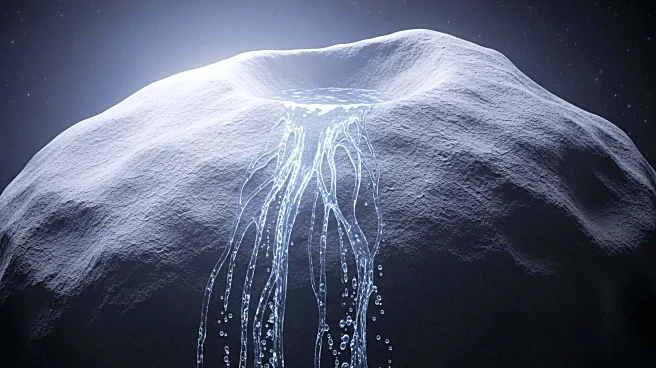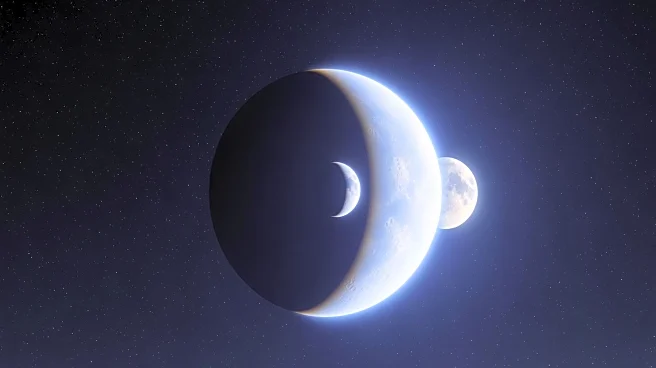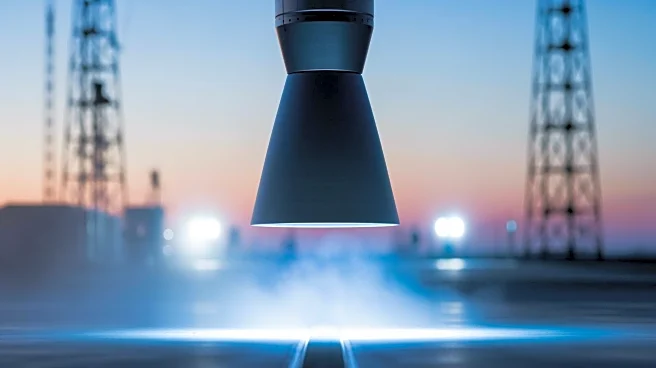What is the story about?
What's Happening?
Recent research has revealed that the asteroid Ryugu may have once contained flowing liquid water, a finding that challenges previous assumptions about the timeline of water activity in the solar system. The study, published in Nature, suggests that water persisted on Ryugu far longer than previously thought, potentially altering the understanding of how water was delivered to Earth. The research involved analyzing rock samples collected by the Japan Aerospace Exploration Agency's Hayabusa2 probe, which indicated that flowing water might have existed on Ryugu or its progenitor rock about a billion years after its formation. This discovery implies that frozen water survived for an extended period before thawing, possibly due to an impact event.
Why It's Important?
The discovery of flowing water on Ryugu has significant implications for understanding the origins of Earth's water and the formation of other celestial bodies. If asteroids like Ryugu retained ice for extended periods, they could have played a crucial role in delivering substantial amounts of water to Earth, beyond the small quantities trapped in minerals. This finding suggests that the building blocks of Earth were potentially much wetter than previously believed, which could reshape theories about planetary formation and the development of life. The research opens new avenues for exploring how water and other essential elements were distributed throughout the solar system.
What's Next?
Further investigation is needed to understand the mechanisms that allowed water to persist on Ryugu. Researchers suspect that an impact event may have caused the thawing of ice, but more data is required to confirm this hypothesis. Future missions to asteroids and other celestial bodies could provide additional insights into the presence and history of water in space. These studies may also inform the search for life on other planets by highlighting the conditions necessary for water retention and distribution.
Beyond the Headlines
The findings from Ryugu could have broader implications for the search for extraterrestrial life. Understanding how water can persist on asteroids may offer clues about the potential for life on other planets and moons. Additionally, this research could influence the development of space exploration strategies, particularly in identifying targets for future missions that aim to uncover the history of water in the solar system.














